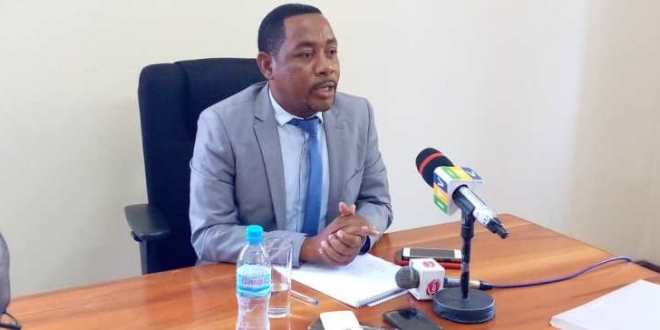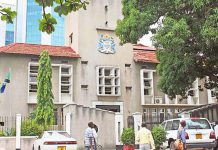AfricaPress-Tanzania: THE government is planning to review regulations so as to reduce monthly deductions and loan repayment charges posed to the beneficiaries of loans of the Higher Education Students’ Loans Board (HESLB).
Deputy Minister for Education, Science and Technology Kipanga Juma Omary told the National Assembly on Wednesday here that the move is aimed to reduce the burden of paying the loans which the beneficiaries carry after completing their studies.
The deputy minister said this while responding to a supplementary question by Special Seats MP, Halima Mdee (Chadema) who claimed that the majority of the beneficiaries of the HESLB loans have been struggling to pay the loans even if they have no income generating activity after completing their studies.
“HESLB beneficiaries have been spending years in the street without getting employment, this has been also affecting them to repay their loans on time but at the end of the day the government punishes them by increasing their payment amount through unfavorable penalties and interest rates,” Mdee claimed.
The Deputy Minister responded that: “We have received a number of complaints on the interest rates and penalties posed to the loans of the HESLB beneficiaries, so we are going to work on this to see how we can reduce or even remove them to provide relief to the Tanzanians students.”
In his supplementary question, George Mwenisongole (Mbozi-CCM) sought to know the government’s plans to reduce the interest rates and levies posed to the loan beneficiaries so as to reduce burden to the poor students.
The deputy minister clarified that the 15 percent deduction from gross salary is not interest but a loan repayment deduction itself.
Clarifying on loans deductions and interest rates, Minister Joyce Ndalichako said the government wasn’t posing a 10 percent interest rate as many of the people think but it was posing a value retention fee of six percent.
“The 15 percent deductions do not apply to interest as some stakeholders have stated. These are the total deductions that a beneficiary deducts from his/her monthly salary which are submitted to HESLB by the employer,” said Prof Ndalichako.
In a basic question, Busokelo MP, Atupele Mwakibete sought to know the government’s plans to expand services and ensure that more poor students are reached with the loans so as to enable them achieve their high education dreams.
Deputy Minister Omary responded that the government will continue expanding the budget so as to ensure that more students benefit from the loans.
“In the 2021/22, we have proposed a 500bn/- budget for the HESLB loans. I am sure that more eligible students will benefit from these loans,” he said.
Early November 2017, the Parliament passed amendments on the HESLB Act of 2004 that initially required employers to deduct the 15 per cent from loan beneficiaries’ gross salaries up from the previous eight per cent, the amendments that were later effected from January 2018.
The Act also gives power to the loan board to effectively take beneficiaries and employers to task. In the new changes, an employer who fails to furnish the board with the particulars risks fines and a jail term of not less than 36 months.







